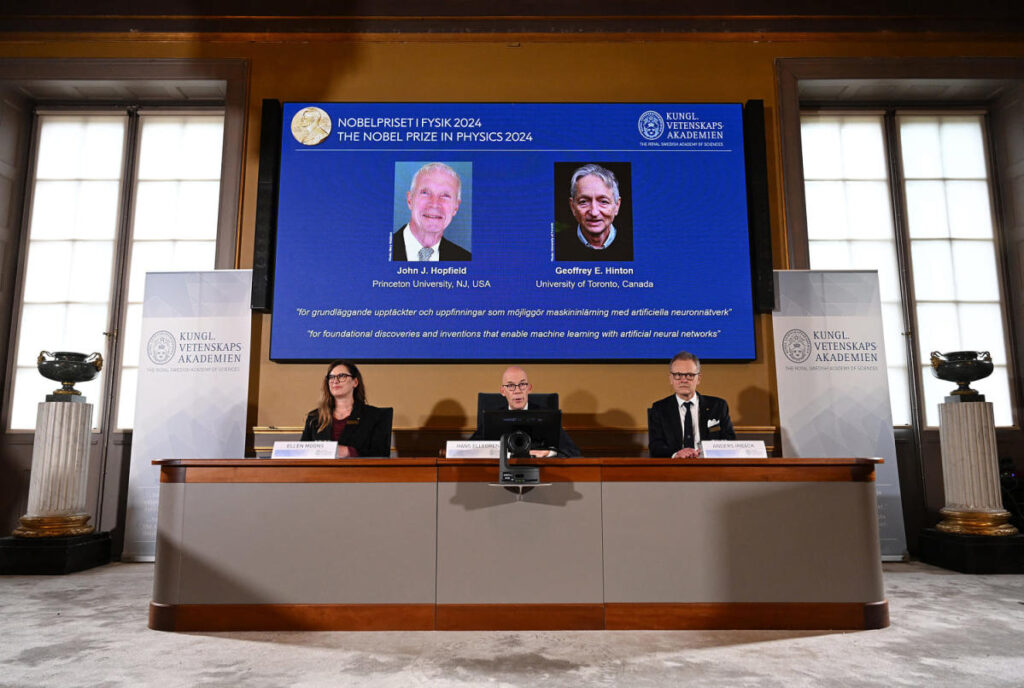An American professor at Princeton University and a British-Canadian professor at the University of Toronto won the Nobel Prize in Physics on Tuesday for research that “formed the building blocks” of a key part of artificial intelligence.
John J. Hopfield, 91, received the honor alongside Geoffrey E. Hinton, 76, who left his job at Google last year so he could speak freely about his concerns about the technology.
Since the 1980s, the pair have been using tools from physics to develop the foundations of what’s known as “machine learning,” one of the core AI concepts widely used today.
Their research “formed the building blocks of machine learning, which can help people make faster and more reliable decisions,” Ellen Moons, chair of the Nobel Committee for Physics, told a news conference. The use of this technology has “become part of our daily lives, for example in facial recognition and language translation,” Moons said, warning that the “rapid development of AI has also raised concerns about our future.”
Machine learning involves feeding computers massive amounts of data so they can ‘learn’ how to do everything from diagnosing diseases to knowing what people’s favorite streaming shows are.
Hopfield has been a major influential figure in this field since 1982, when he invented the ‘Hopfield network’ – a method that has been widely used ever since. Hinton used this basis to come up with ‘the Boltzmann machine’, which can be used for tasks such as classifying images.
This is a development story. Check back later for updates.
This article was originally published on NBCNews.com







